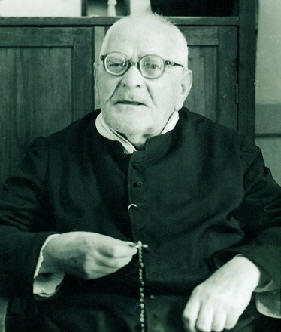
Gaetano Catanoso was an Italian Catholic priest and the founder of the Suore Veroniche del Santo Volto (1934). Catanoso served as a parish priest in two different parishes for his entire ecclesial life and was an ardent devotee of the Face of Jesus which he promoted to the faithful. He also founded the Poor Clerics to encourage vocations to the priesthood while forming the Confraternita del Santo Volto (1920) to spread devotion to the Face of Jesus. He dedicated his pastoral career to bringing the Gospel message to all people and hiked or rode on a mule to reach distant and surrounding mountain villages in order to evangelize to people.
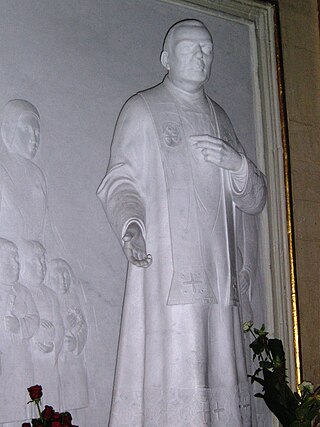
Filippo Smaldone was an Italian Roman Catholic priest and the founder of the Salesian Sisters of the Sacred Hearts. Smaldone is best known for his extensive work with the deaf during his lifetime. Smaldone was a gifted preacher known for his commitment to proper catechesis and to the care of orphans and the mute, which earned him civic recognition.
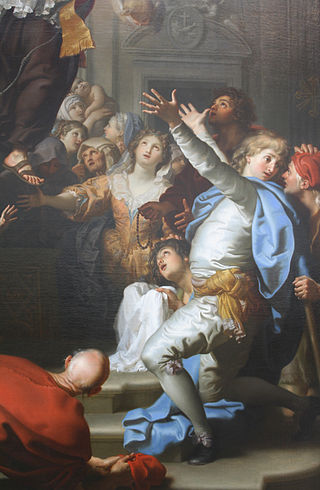
Tommaso da Cori - born Francesco Antonio Placidi - was an Italian Roman Catholic priest and a professed member of the Order of Friars Minor who lived as a hermit for much of his religious life. He gained fame as a noted preacher throughout the region where his hermitage was located and for this became known as the "Apostle of the Sublacense".

Nazju Falzon was a Maltese cleric and a professed member from the Secular Franciscan Order. He did not become an ordained priest because he did not feel he was adequate enough for such an honor. He became an apt catechist and noted for his commitment to religious instruction.

Josep Manyanet i Vives, SF was a Spanish Roman Catholic priest and the founder of the Sons of the Holy Family and the Missionary Daughters of the Holy Family. He served in a range of capacities as a parish priest before establishing both religious orders in order to spread devotion to the Holy Family to whom he fostered an intense devotion.

Stanisław Kazimierczyk was a Polish Catholic priest and a professed member of the Canons Regular of the Lateran. He became noted for his ardent devotions to both the Eucharist and to his personal patron saint, Stanislaus of Szczepanów, as well as for his charitable dedication to the ill and poor of Kraków.
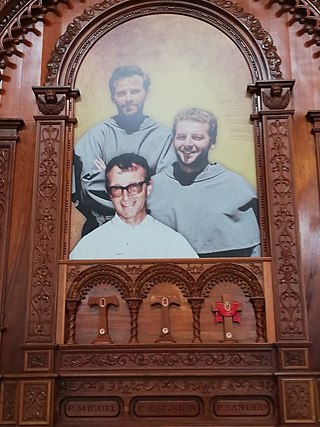
The Three Martyrs of Chimbote were a group of two Polish Franciscan priests and one Italian missionary priest murdered in Peru in 1991 by the Shining Path communist guerillas. Michał Tomaszek and Zbigniew Adam Strzałkowski, and Alessandro Dordi were murdered on 9 August and 25 August 1991 respectively.
Blessed Mosè Tovini was an Italian Roman Catholic priest and was both the nephew and godson of Blessed Giuseppe Antonio Tovini.

Domenico Lentini was an Italian Roman Catholic priest. He was ordained in 1794 and was a life-long parish priest in his hometown of Potenza where he promoted Eucharistic devotion and worked alongside the poor of the area. He also fostered education and evangelization and often taught parishioners catechism and literature while making himself available to hear the confessions of penitents.
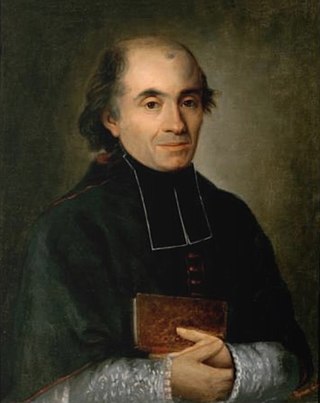
Pierre Bonhomme was a French Roman Catholic priest who exercised his pastoral mission in Cahors. He went on to establish the new religious congregation known as the Sisters of Our Lady of Calvary of Gramat.

Josep Tous Soler was a Spanish Roman Catholic priest and a professed member of the Order of Friars Minor Capuchin - a branch of the Franciscan Order. Upon becoming a friar he was called by the religious name Josep of Igualada and went on to preach across both Spain and France.

Maria Assunta Pallotta, born Assunta Maria Pallotta, was an Italian Roman Catholic nun who served as a member of the Franciscan Missionaries of Mary and also as part of the missions to China in the aftermath of the Boxer Rebellion.
Clemente Marchisio was an Italian Roman Catholic priest who served as a parish priest in the Archdiocese of Turin. Marchisio served as an assistant priest before travelling across Italian cities as word of his mission and holiness spread. In the spirit of evangelical and devotional zeal he established the Daughters of Saint Joseph of Rivalba to suit the religious needs of females. The order had an emphasis on the Eucharist and on Saint Joseph himself.

Gertrude Prosperi was an Italian Benedictine. Prosperi assumed the religious name Maria Luisa Angelica and finally served as the abbess of her convent for an extended period of time until her death.
Jan Wojciech Balicki was a Polish Roman Catholic priest who served as a confessor and spiritual director to seminarians in Poland around the time of World War II; he also acted in various leadership positions in the education of new priests and was noted for his intellectual gifts.
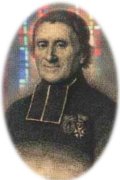
Pierre-François Jamet was a French Roman Catholic priest who refused to take the oath of allegiance during the French Revolution. He is also called the "Second Founder" due to restoring the dwindled congregation of the Sisters of the Good Saviour. In 1827 he was awarded the Legion of Honor for his service as a priest.
Petar Barbarić, SJ was a Bosnian Catholic novice from Šiljevišta, near Ljubuški, Bosnia Vilayet (modern Bosnia and Herzegovina, who was in the midst of his studies for the priesthood before he died of tuberculosis.
Mariano da Roccacasale - born Domenico di Nicolantonio - was an Italian Roman Catholic professed religious from the Order of Friars Minor. He was of peasant stock and entered the order in his twenties as a professed religious rather than as an ordained priest. He was an influence in the decision of Giuseppe Oddi joining the Franciscans after their 1863 encounter. He became titled as a Servant of God under Pope Leo XIII on 12 December 1895 with the commencement of the canonization cause. He received the title Venerable in 1923 under Pope Pius XI; Roccacasale was beatified - alongside Oddi - when Pope John Paul II presided over the late Franciscans' beatification on 3 October 1999.

Pietro Corradini was an Italian Roman Catholic priest and a professed member of the Order of Friars Minor. Corradini served in several leadership positions within his order which bought him into contact with the likes of James of the Marches and Camilla Battista da Varano - he was her confessor and spiritual director - while in turn being a well-known figure due to his mild mannered nature and for his preaching abilities.
Giuseppe Beschin - in religion Ignazio - was an Italian Roman Catholic priest and professed member from the Order of Friars Minor. He studied in northern Italian cities for the priesthood while he did his Franciscan formation before serving as a professor in Rome in addition to holding several other important positions. Beschin was noted for his spiritual direction and for having been a good confessor while he spent most of his career spearheading efforts for the beatification cause of Bernardino da Portogruaro. Beschin also had served in several leadership roles during his time as a priest that saw him move often from the north to Rome.














